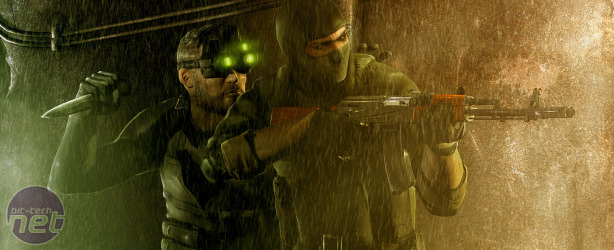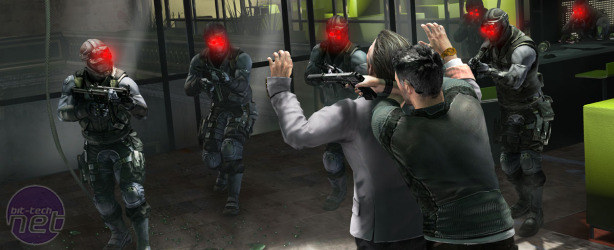
The Death of Stealth
Stealth games as we know them are dying and, rather ironically, you may not have even noticed. It’s been a slow decline for the shadow skulking, light destroying genre, but they simply don’t get made that much any more. What used to be powerful franchises are now little but fond memories or warped variations of what once was. So, what happened?Well, let’s go back to the start first and do a whistle-stop tour. Not the very start, but probably the most important year in stealth gaming - 1998. It was the year that two very important games launched - Thief: The Dark Project and Metal Gear Solid, both of which would define the genre for years to come.
Thief was exactly what it said on the box for the most part, casting the player as a cynical thief called Garret in a medieval fantasy world. It had you crawling through mansions under the cover of darkness to silently steal everything you could. Fair enough, it went a bit crazy towards the end, but it laid the foundations for a new breed of action. A game where you didn’t have to kill everyone; a game where, rather than looking for new weapons, you were looking for shadows. In Thief the worst thing you could do was get into a fight.
Metal Gear Solid was slightly different. Billed as Tactical Espionage Action, it was still stealth, but not in the same way as Thief was. It was much faster and dealt purely with line of sight rather then the light/dark mechanics of Thief. It also had one crazy plot courtesy of Hideo Kojima.
Thief spawned it’s first sequel, The Metal Age, in 2000 and the game was seen as a big improvement over the original, and pushing Thief more where it needed to go - the focus was more on actual robberies and investigation, rather than defeating demons. In the same year Agent 47 got his first outing in Hitman: Codename 47. It was a ropey game really with some very questionable voice work and some defunct missions but it was screaming with potential and put a big emphasis on using disguises.
So, by 2000, with four games and three franchises the modern stealth game was really hitting its stride. Thief, MGS and Hitman were completely different games in all respects bar their core idea which departed from the gaming norm - one guy can not take on a small army unless he’s smart about it. Thief was slow, first person, and depended on creating complete darkness to work in with; Metal Gear was faster and more than happy for stuff to explode; and Hitman required social integration with quick bursts of violence. These three formats established the format for how developers would approach the genre.
Over the next couple of years stealth was having a wail of a time. It was invited to all the parties, girls crowding around it admiring its new and improved AI systems before publishers dragged it off to the toilets to do lines of “soft shadows” and finally passing out on a bed of Kojima ridden exposition. A mere four years after Thief had launched and Ubisoft introduced us to Splinter Cell, thrusting Sam Fisher into our screens. The genre didn't stop there either and between 1998 and 2006 there were around 14 stealth games released in the big franchises, plus newcomers ranging from The Chronicles of Riddick and the Rainbow 6 series to the SWAT series and Hidden & Dangerous.
And then, suddenly, stealth wasn’t fashionable any more. The party invites stopped. The girls were off admiring FPS’s polygon count and the publishers were off snorting micro-transactions. MMO was the big man now and all stealth could do was sit in its shadowy room, hiding from guards that weren’t even looking for it. In fact, there weren’t even any guards - they were just mannequins with disguise kits on. It was sad.
After 2006 stealth games changed and releases slowed to a crawl. We're still waiting on the ever elusive and mis-titled Thi4f. Hitman 5 is showing no signs of life, with IO off messing around with the extremely average Mini-Ninjas and Kane and Lynch series. Metal Gear and Splinter Cell have stuck it out, but only by changing/breaking to fit modern expectations.

MSI MPG Velox 100R Chassis Review
October 14 2021 | 15:04











Want to comment? Please log in.